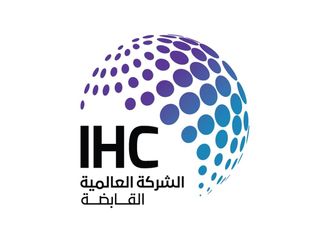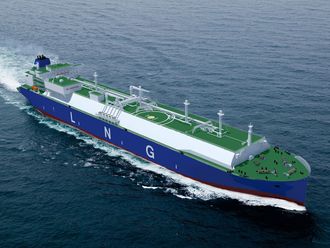London: European shares dropped sharply on Wednesday as investors switched to stronger markets in the United States and Asia, where economic growth prospects are brighter due to massive central bank stimulus.
Expectations of further support from the US Federal Reserve and the Bank of Japan amid signs of weak inflation also helped gold to recover from its lowest level in over two years hit on Tuesday after three days of heavy selling.
“Fund managers in Europe are switching guns because they are seeing on the one side Japan with positive momentum and Europe just getting deeper and deeper into a recessionary environment,” Didier Duret, chief investment officer at ABN Amro.
Concerns have risen since the International Monetary Fund trimmed its forecasts for the world economy for this year and next on Tuesday, showing modest growth in the United States, expansion in Japan and weakness in Europe.
The pan-European FTSEurofirst extended a three-day losing streak to fall 0.8 per cent in morning trade while London’s FTSE 100, Paris’s CAC-40 and Frankfurt’s DAX were as much as 1.2 per cent lower.
Earlier MSCI’s broadest index of Asia-Pacific shares outside Japan gained 0.4 per cent, rebounding from Tuesday’s selloff when it fell as much as 1 per cent and was close to its 2013 low.
US stocks jumped more than 1 per cent on Tuesday, although future point to a weak start when Wall Street reopens.
Asian stocks advanced for the first time in three days as new-home construction in the US jumped more than forecast, the International Monetary Fund raised its forecast for Japanese growth and the yen weakened
Toyota Motor Corp, the world’s largest carmaker, advanced 1.8 per cent as a weakening yen boosted the earnings outlook for exporters. Advantest Corp paced increases in Tokyo among makers of semiconductor equipment after Intel Corp forecast second- quarter sales that would exceed some analysts’ estimates. Cathay Pacific Airways Ltd., Asia’s biggest international carrier by passenger revenue, climbed 2.9 per cent in Hong Kong after Deutsche Bank AG raised its rating to buy.
Emerging-market stocks erased earlier gains as lower commodity prices dragged down Russian and Polish equities.
KGHM Polska Miedz SA tumbled 6 per cent in Warsaw after copper retreated, helping send Poland’s WIG20 Index to a seven- month low. OAO Gazprom, Russia’s biggest natural-gas producer and the parent of crude producer OAO Gazprom Neft, slid to the lowest level since March 2009 in Moscow, dragging the Micex Index toward its lowest close since June 25. Chinese banks led a 1.2 per cent drop in the Hang Seng China Enterprises Index of mainland companies listed in Hong Kong.
The MSCI Emerging Markets Index fell 0.3 per cent to 1,006.41 as of 12:39pm in London. The gauge earlier gained as much as 0.4 per cent. Copper led declines in industrial metals after the International Monetary Fund cut its forecast to China’s economic growth yesterday, while oil traded near the lowest level in four months. The rand weakened 0.5 per cent versus the dollar and South African bonds gained, as March inflation was slower than predicted by analysts.
Yen slides
In the currency markets the Japanese yen resumed its fall against the euro and the dollar as traders anticipated flows out of Tokyo by investors looking for higher returns due to the central bank’s aggressive policy easing plans.
The dollar gained 0.8 per cent to 98.25 yen, although it was still down about 1.6 per cent from a four-year high of 99.95 yen set last week. The euro rose 0.8 per cent to 129.52 yen , but stayed below its three-year peak of 131.10 yen also hit last week.
“Over the next couple of days we might see some consolidation around current levels but with the easing from the BoJ we think the dollar will trade higher versus the yen,” said Marcus Hettinger, global FX strategist at Credit Suisse.
Currency traders’ attention was turning to a meeting of finance officials from the Group of 20 leading nations beginning in Washington on Thursday, for any signs of concerns about the yen’s weakness.
In the debt market the focus was on a German auction of 3.35 billion euros of 10-year debt, which saw good demand, supported by investors’ expectations that the European Central Bank will cut interest rates in the next few months.
Anticipation that Germany’s safe-haven debt will also benefit from Japanese investors switching out of their ultra-low yielding domestic bonds added to its attraction. Yields at the auction were in line with a previous sale in March at around 1.36 per cent.












